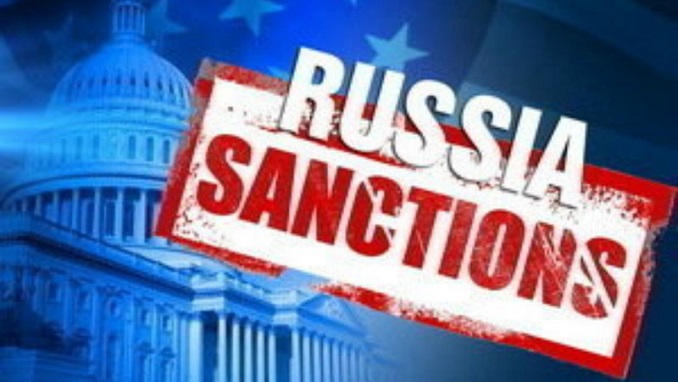The United States is imposing more sanctions against Russia, with the latest measures, going into effect on Monday likely to bring more economic headaches for the Kremlin. However, the sanctions will also affect U.S. and European companies, including technology exports, The Washington Post reports.
After an initial ban on some U.S. technology exports to Russia, a second stage of the sanctions could follow later this year with penalties including a ban on Russian airlines landing in the United States.
Russian lawmakers say the measures could prompt Moscow to halt exports of its RD-180 rocket engines, which the United States uses to launch government satellites. Russian state television said Moscow could also retaliate by charging U.S. airlines more to traverse Russian airspace en route to Asia.
According to economists and trade experts, unlike other countries that have been under U.S. sanctions, including Iran, Cuba, Myanmar and North Korea, Russia plays a bigger role in the global economy, increasing the sanctions’ potential to sting. But this is true for both their intended targets and unintended bystanders in the United States and Europe, told the newspaper.
“Russia is part of the world economy,” said Richard Sawaya, a sanctions expert at the National Foreign Trade Council, an industry-financed organization that advocates free trade. “It’s a member of the World Trade Organization,” he said. “Its banks are connected throughout Europe and the U.S.”
Also under consideration in Congress are more sanctions that could prove painful for European oil and gas companies. A bipartisan legislation would ban U.S. investors from buying new shares of Russian government debt. It would also cut some Russian banks’ access to U.S. dollars, a step that would “very, very seriously hit the Russian financial system,” said Vladimir Milov, economic adviser to Russian opposition politician Alexei Navalny, a foe of President Vladimir Putin.
According to Jacob Kirkegaard, senior fellow at the Peterson Institute for International Economics in Washington, the bill’s energy-related sanctions could prove particularly harmful to European companies. Those measures would ban companies from investing in crude-oil infrastructure inside Russia, or in large energy projects outside Russia if they involve a Russian state-controlled company.
Kirkegaard said that would probably complicate investments by German companies and Royal Dutch Shell in Nord Stream 2, a planned pipeline that would ship Russian natural gas to Germany.












